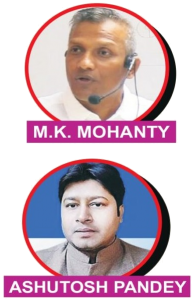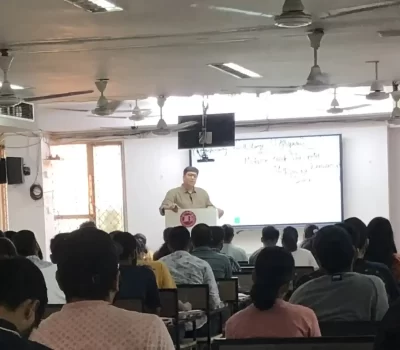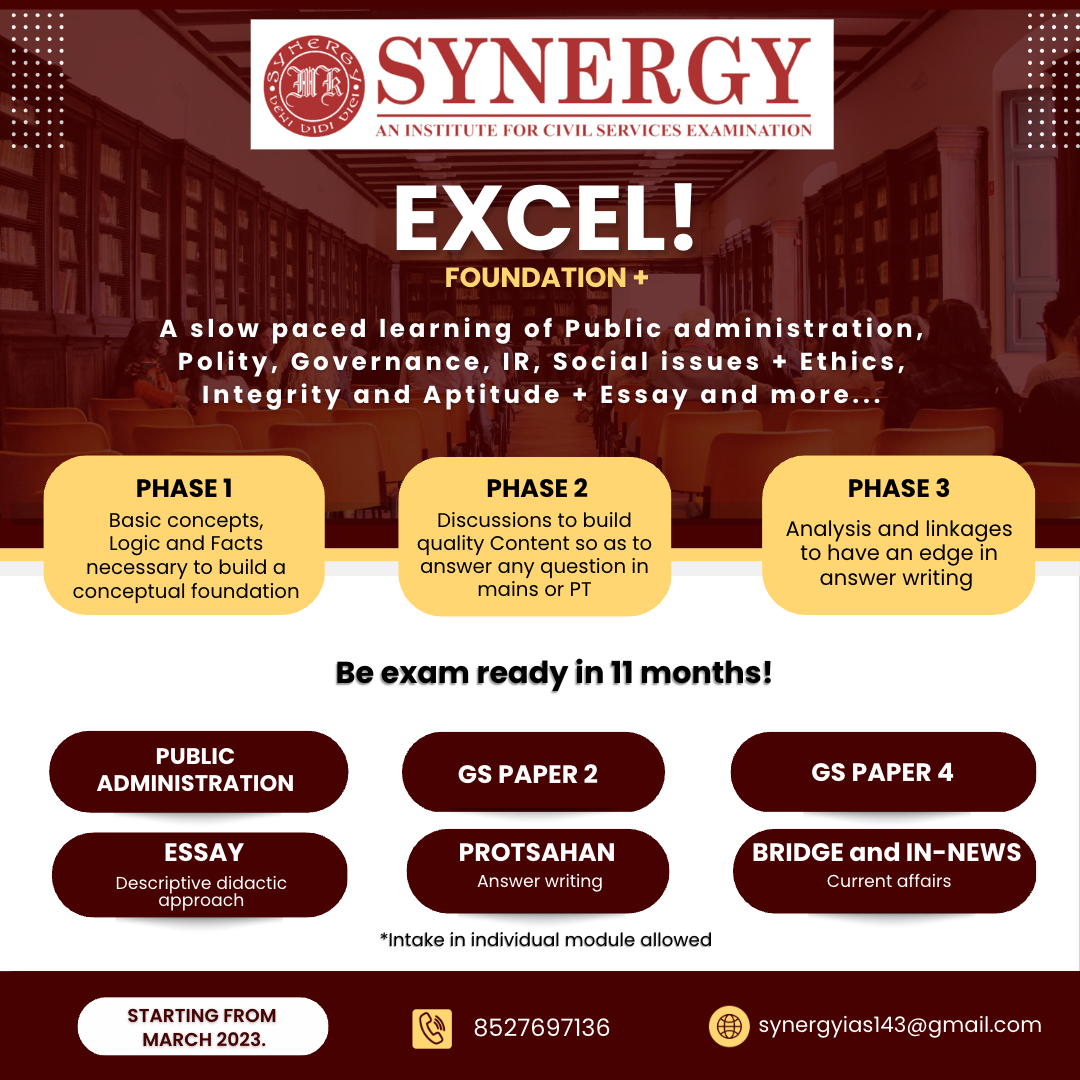Ethics Conceptor
Live Online/Offline Classes by : M.K. Mohanty & Ashutosh Pandey & Expert Team
- New Batch Coming SOON
- Course Duration: Coming SOON
- No Class is Pre-recorded
- Timing: Coming SOON
- Fee: Coming SOON
Sign Up to Score High Better Faster


About Ethics Conceptor for UPSC Mains
Introduced in 2013, Ethics is a part of GS Paper- 4 in UPSC Mains. It is titled Ethics, Integrity, and Aptitude. UPSC clearly mentions in its notification that it through Ethics UPSC intends to “test the candidates’ attitude and approach to issues relating to integrity, probity in public life and his problem-solving approach to various issues and conflicts faced by him in dealing with society. Questions may utilize the case study approach to determine these aspects”
Consisting of a total of 250 marks, the Ethics UPSC paper is divided into two sections (125 marks each):
Sections A includes theoretical questions which are generally of the applied kind.
Section B consists of case studies.
Overall, the Ethics UPSC paper is one of the easiest papers in the UPSC Mains Exam. Your pragmatic and productive approach, self-awareness, personal & professional ethics are put to test. Hence, to score well in the Ethics UPSC paper, you should be able to write your thoughts properly.
Ethics Conceptor UPSC Syllabus for Mains Exam
Ethics is a very subjective paper. The answers in this paper will vary from candidate to candidate. However, while preparing for this paper, it is important to know the topic-wise syllabus. It will help you in framing your answers in a better way.
Ethics, Integrity & Aptitude | Basic Concept Human Values Aptitude and foundational values of civil services India & World Thinkers Attitude Emotional Intelligence Values & Ethics in Public Administration Probity in Governance |
Applied Ethics | Euthanasia Issue Surrogacy Ethics & Sports Media Ethics Business Ethics Ethics Related to Economic Sanctions Refugees & Ethics Ethical Dilemmas of Globalization Ethics of War Environmental Ethics Ethical Issues in Biotechnology Animal Ethics |
Ethics Conceptor Course Highlights

5 Months Comprehensive Classes

Complete UPSC Syllabus of Public Administration

Coverage of Paper 2 through 2nd ARC based issues and current perspectives, including various journals.

6 Class Test - 3 Test in Paper 1 and 3 Tests in Paper 2

Comprehensive study material along with IIPA notes, 2nd ARC Gist and relevant articles that are in contemporary debate.

Discussion of previous year UPSC Question Papers

Discussion of most important Areas for Mains 2022

Innovative methodology, through the study of approaches for Paper 1 & Paper 2

Revision workbook for comprehensive understanding and answer writing skill development
Features of Ethics Conceptor Course

Structured Courses

High Success Rate

India's Best Faculty


Classroom & Online Classes

15+ Years of Trust

3000+ Results
Our Toppers








Testimonials
Few of Our Achiever’s and Their Feedbacks


FAQ's on Ethics Conceptor
Creativity quotient analysis is a method of understanding how a student interprets a particular topic. It helps in developing an interrelated approach to understanding the difficult topics in the syllabus, as questions in public administration are quite hidden and camouflaged it becomes important to understand their various dimensions and then deal with the core issue of the question.
It is mains 2022 specific course designed for all those appearing with public administration as an optional and are willing to revise and value add the complete syllabus in an integrated manner.
Public Administration is pragmatic in nature dealing also with Indian Administrative System, which facilitates the success of candidates at each and every stage of examination, that is, Preliminary, Mains and Interview. As compared to other social sciences, humanities, Public Administration is more dependable and manageable within a specified time period subject to the condition that a systematic approach is adopted during the course of preparation to meet the requirements of the examination.
(a) The syllabus comprises of two papers, but it is never desirable to prepare the two papers separately. The integrated approach to the completion of syllabus is always desirable. This saves time and provides in-depth understanding of the subject matter in a realistic manner.
(b) The main examination is generally considered to be highly subjective in nature. But through objective preparation the zone of subjectivity can be reduced to a great extent.
(c) Conceptual topics, like Theories of Administration, Administrative Behaviour, Comparative and Development Administration, require extra effort but are scoring at the same time.
(d) Comments, statements and observations by eminent thinkers, scholars and administrators should be analysed with due emphasis to grasp their substantive meaning.
On completion of the textual readings, writing practice is must. Try to attempt the answers in an orderly, effective and exact expression, combined with due economy of words. In comment type questions your attempt should be to answer well within the prescribed limits. For medium and long questions the answers should be written in about 300 and 500–700 words respectively. To conclude, it can be suggested that the consultation of authentic standard reference books is crucial in the success-oriented preparation of Public Administration.
PA is the only subject in which almost all the students choosing it as an optional subject are without any formal background whatsoever. It attracts students of backgrounds as diverse as Engineering, MBBS, MBA, pure science students as well as social science ones.





